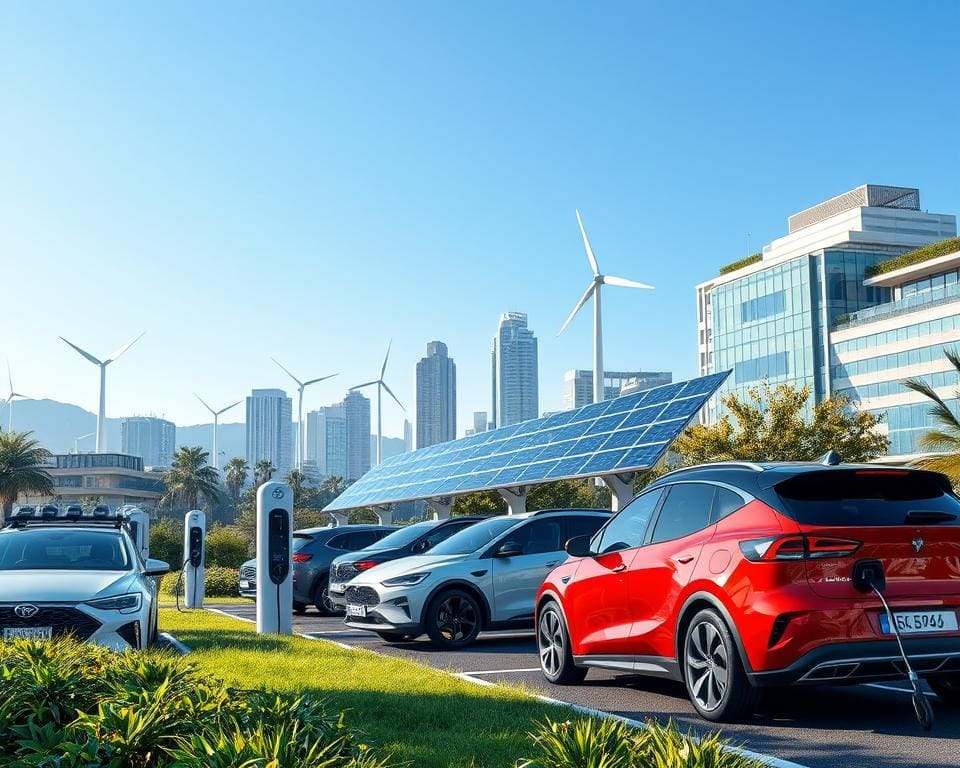As the world grapples with the pressing challenge of climate change, the debate around Electric Cars vs. Hydrogen Vehicles has never been more critical. With a growing emphasis on sustainable transportation, both options present viable paths towards achieving zero-emission vehicles. However, many are left questioning which is greener? In this discussion, we will delve into the environmental impact of these innovative technologies, exploring their potential to reduce the carbon footprint and promote eco-friendly transportation. The comparison involves not only the vehicles themselves but also the various production methods and energy sources that shape their overall sustainability. Understanding these dynamics is essential as we strive for a greener future.
Understanding Electric Vehicles and Their Environmental Impact
Electric vehicles (EVs) are revolutionising the way we think about transport and its effect on our planet. By solely relying on electricity stored in batteries, they offer a promising alternative to traditional petrol and diesel cars. This section explores the essential features of electric vehicles while highlighting their significance in eco-friendly transportation and their overall environmental impact.
What Are Electric Vehicles?
Electric vehicles are automobiles powered entirely by electricity. Unlike conventional vehicles, they do not emit any tailpipe emissions, thereby enhancing air quality in urban areas. As technology has advanced, the design and efficiency of electric vehicles have improved significantly, making them a viable choice for more drivers.
Benefits of Electric Vehicles for Eco-friendly Transportation
Electric vehicles play a critical role in promoting eco-friendly transportation. Their many benefits include:
- No tailpipe emissions, leading to cleaner air and a reduction in urban pollution.
- Lower greenhouse gas emissions throughout their operational life compared to fossil fuel-powered vehicles.
- Increased energy efficiency, translating to fewer resources consumed during operation.
As cities strive for greener alternatives, electric vehicles are becoming increasingly necessary for reducing our carbon footprint and embracing environmentally friendly vehicles.
Assessing the Carbon Footprint of Electric Cars
While electric vehicles offer many advantages, assessing their complete environmental impact requires a deeper understanding. Key considerations include:
- Battery production processes, which can emit considerable carbon but are becoming more sustainable.
- The source of electricity used for charging, with a growing percentage coming from renewable energy.
- The longevity and recyclability of electric vehicles’ components, contributing to overall carbon footprint reduction.
Leading brands like Tesla and Nissan are actively working on enhancing battery efficiency and sustainability, demonstrating a commitment to the future of greener transport.

Electric Cars vs. Hydrogen Vehicles: Which Is Greener?
The debate surrounding which is greener, electric cars or hydrogen vehicles, is gaining traction. Each type presents distinctive environmental advantages and challenges that warrant careful examination. Understanding the green credentials of hydrogen vehicles and comparing their emissions to those of electric cars provides vital insights for eco-conscious consumers.
The Green Credentials of Hydrogen Vehicles
Hydrogen vehicles utilise hydrogen fuel cells to produce electricity, emitting only water vapour as a by-product. This clean energy source presents a promising alternative to traditional fossil fuels. Nonetheless, the sustainability of hydrogen vehicles largely hinges on the methods used to produce the hydrogen, which can range from steam methane reforming to electrolysis. The latter is becoming increasingly viable, especially when powered by renewable energy sources, reducing the overall carbon footprint associated with hydrogen production.
Comparative Analysis of Emissions and Energy Use
In assessing the comparative analysis of emissions and energy use, it becomes evident that both electric and hydrogen vehicles have unique challenges. Electric cars often benefit from established charging infrastructure and lower operational emissions. Yet, they still face emissions related to battery production and electricity generation. On the other hand, hydrogen vehicles contend with additional hurdles, including energy-intensive hydrogen production and the need for extensive fuelling infrastructure.
- Electric vehicles generally exhibit lower emissions, primarily when charged with renewable energy.
- Hydrogen vehicles could present a cleaner option if hydrogen is sourced sustainably.
- Operational efficiencies differ, with electric cars often requiring less energy input compared to hydrogen fuel cells.
Technological Innovations in Clean Energy Vehicles
As the automotive industry races towards a sustainable future, technological innovations play a crucial role in reshaping the landscape of clean energy vehicles. Notably, advancements in battery technology have emerged as a game-changer for electric cars, with manufacturers like BMW and Volkswagen leading the charge. These innovations promise not only to enhance performance but also to improve the overall sustainability of electric vehicles.
Advancements in Battery Technology for Electric Cars
Among the most exciting developments are solid-state batteries, which offer a range of benefits including increased driving distance, significantly reduced charging times, and enhanced safety features. Leading companies, such as LG Chem, are heavily investing in research and development to push these technologies further, aiming to deliver a more efficient and economically viable approach to electric mobility. Such advancements position electric vehicles as a highly appealing option for environmentally conscious consumers in the United Kingdom.
Hydrogen Fuel Cells: The Future of Alternative Fuel Vehicles
On the hydrogen side, breakthroughs in fuel cell technology are paving the way for the next generation of alternative fuel vehicles. With smaller, more efficient fuel cells on the horizon, costs are expected to decrease while vehicle performance continues to rise. This progress signifies a pivotal moment, where both electric and hydrogen-powered vehicles contribute to a future of sustainable transportation. The collaborative advancements in these technologies are essential for creating an eco-friendly automobile ecosystem that caters to a market increasingly prioritising sustainability.








